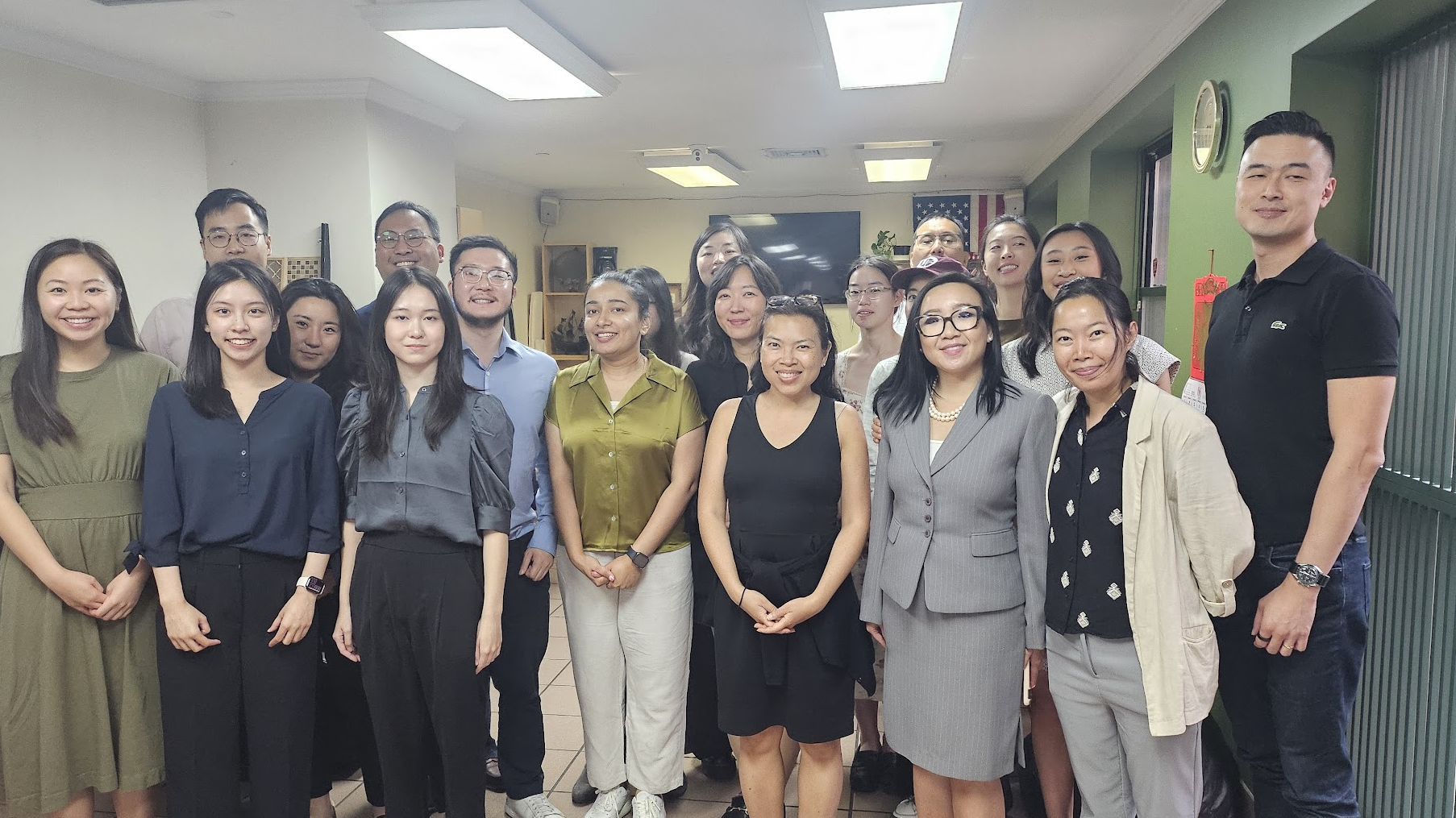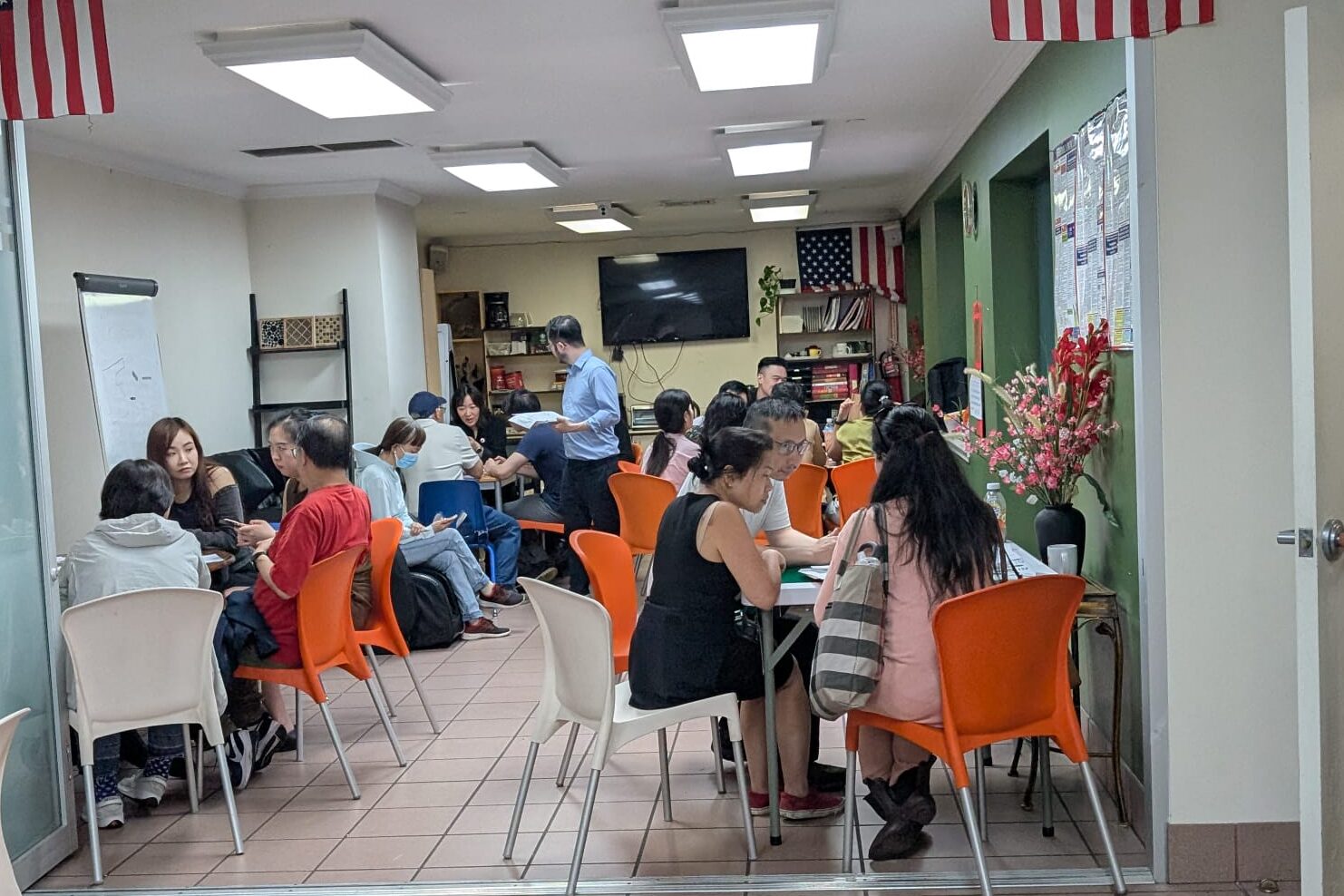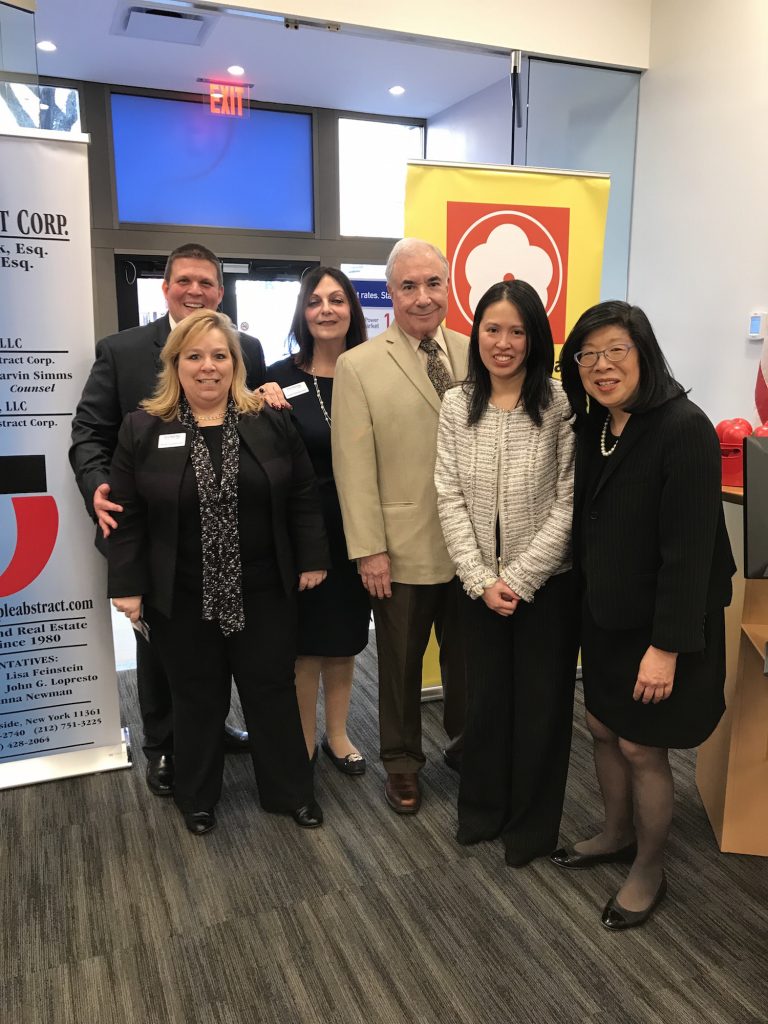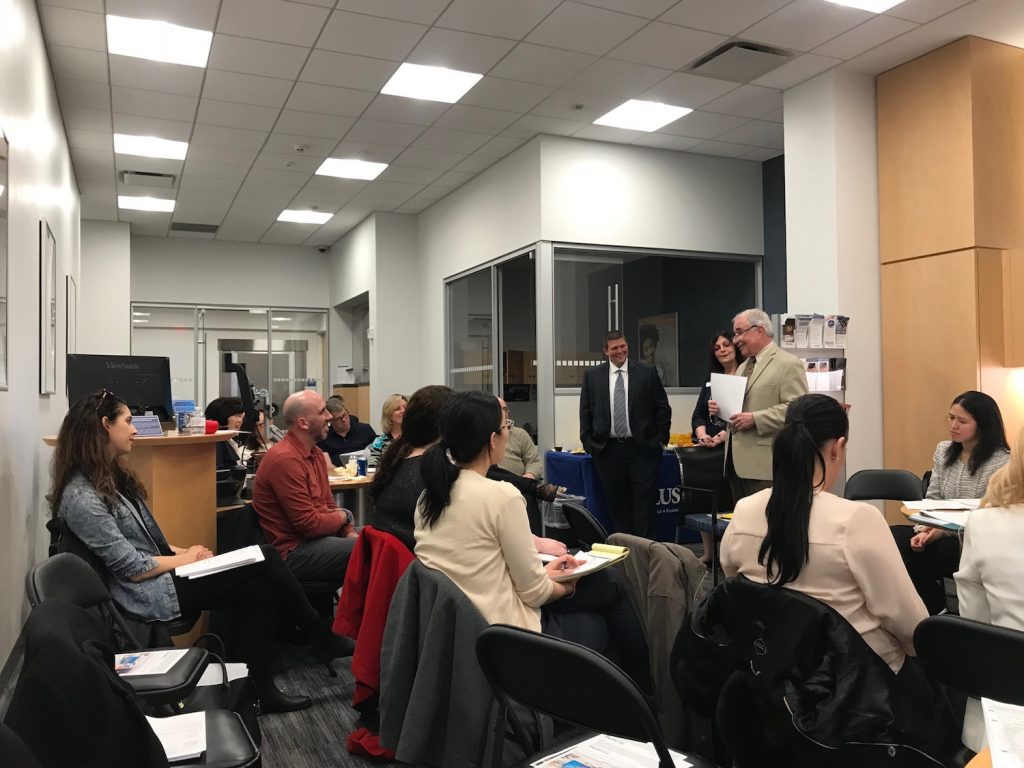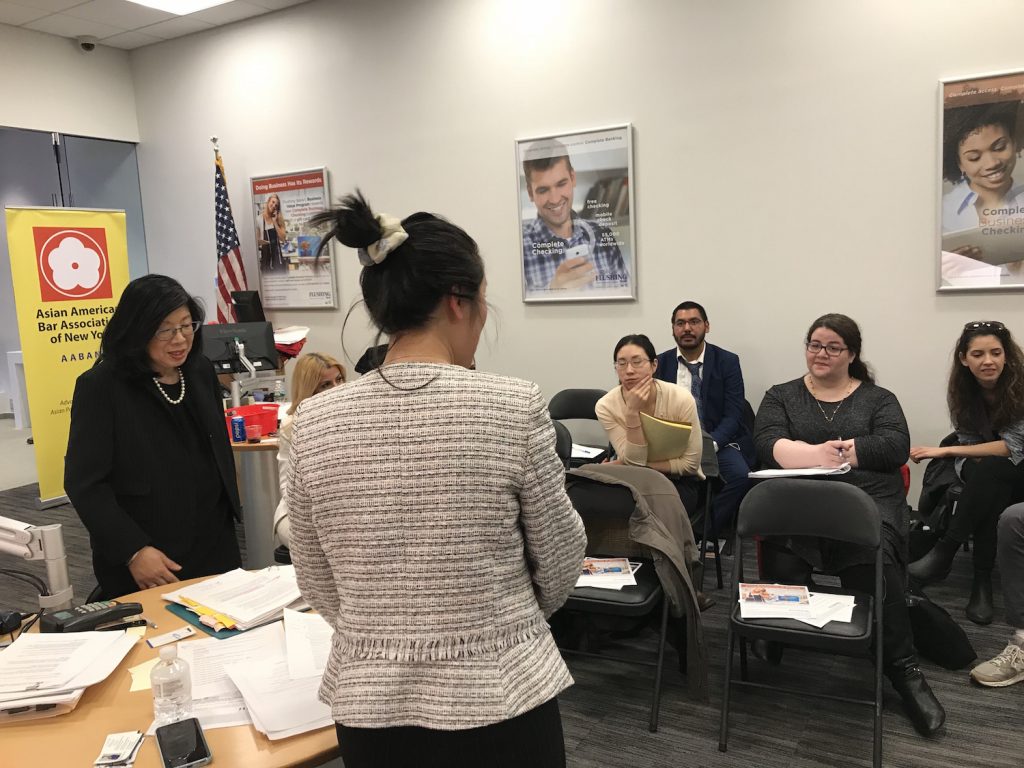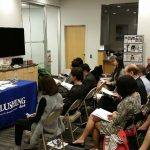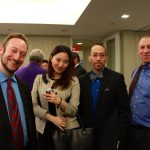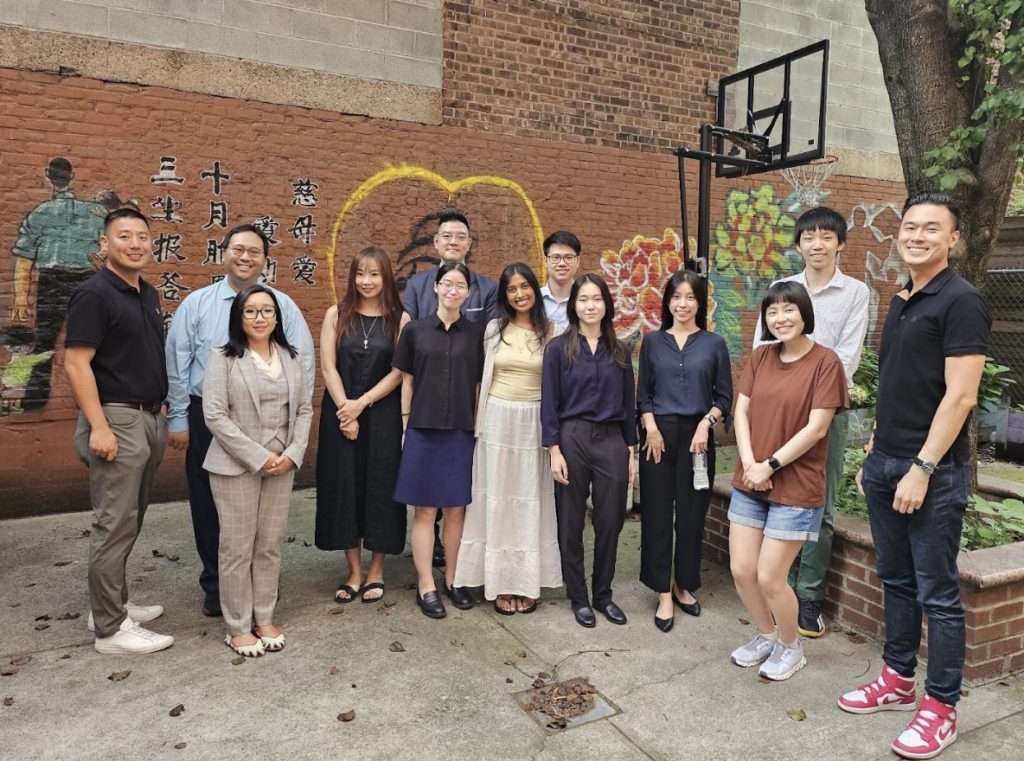
We extend our sincere gratitude to AABANY, the Asian American Law Fund of New York (AALFNY), AABANY’s Pro Bono and Community Service (PBCS) Committee, Asian Americans for Equality (AAFE), and all the dedicated volunteers who contributed to the success of our Pro Bono Legal Clinic in Manhattan on July 16th, 2025.
During the clinic, our volunteers provided invaluable assistance to clients with issues ranging from housing, personal injury, finance, and immigration. The experienced volunteer attorneys, shadowers, and interpreters assisted each client in reducing their stress by offering legal insight, language assistance, and a diverse pool of legal resources through AABANY’s Legal Referral and Information Service (LRIS).
College and law students contributed significantly by gathering valuable legal knowledge and experience through shadowing and notetaking. They also provided much-needed linguistic and translational support as interpreters. Numerous clients had difficulty communicating fluently in English, and the Mandarin and Cantonese speaking students offered substantial assistance to their attorneys and clients.
The most frequently-raised issues during this clinic involved housing (such as retroactively-raised rents) and personal injuries (such as high medical expenses). Many clients struggled to understand their rights and legal documents (especially those involving transactions) due to inexperience in legal matters and limited English proficiency. We provided each client with satisfactory, step-by-step legal and personal guidance to ensure that they fully understood their case and if needed, connect them with lawyers for potential litigation.
Many volunteers stayed after to celebrate another successful Pro Bono Clinic. Both the attorneys and students enjoyed this time to network and connect with each other.

We thank again all the volunteers at the July 16th Manhattan Pro Bono Clinic for their time, professionalism, and contribution:
Volunteer Attorneys:
Marcus Cheung
Beatrice Leong
Mike Tse
Yilan Wang
Anthony Wong
Shadowers/Interpreters:
Sisu Chou
Katelyn Hai
Kenny Ip
Emily Lai
Dazhen Lu
Priyanka Mukhara
Carrie Nie
Tammy Tam
Albert Tong
Jennifer Juang-Korol
We invite you to continue supporting our community by joining us at our upcoming Pro Bono Clinics:
August 6th [Queens link here] from 6:30-8:30 pm, One Flushing Community Center, 133-29 41st Ave, 2nd Floor, Flushing, NY 11355
August 20th [Manhattan link here] from 6:30-8:30pm, AAFE Community Center, 111 Norfolk Street, NY, NY 10002
September 20th [Brooklyn link here], from 12:30 – 3:30pm, CPC Brooklyn Community Services, 4101 8th Avenue, Brooklyn, NY 11232
Thanks once again to all our volunteers for their commitment to Pro Bono service and for making a meaningful difference in our community.
We look forward to your participation in our future clinics!
To learn more about the Pro Bono & Community Service Committee, visit probono.aabany.org.


